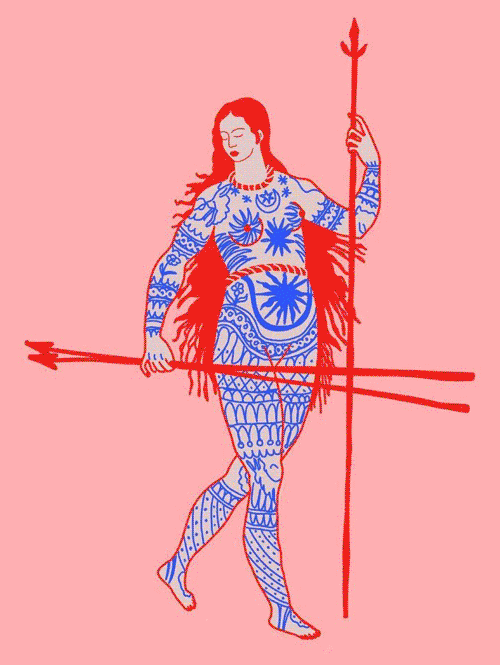Create an account
Welcome! Register for an account
La password verrà inviata via email.
Recupero della password
Recupera la tua password
La password verrà inviata via email.
-
- container colonna1
- Categorie
- #iorestoacasa
- Agenda
- Archeologia
- Architettura
- Arte antica
- Arte contemporanea
- Arte moderna
- Arti performative
- Attualità
- Bandi e concorsi
- Beni culturali
- Cinema
- Contest
- Danza
- Design
- Diritto
- Eventi
- Fiere e manifestazioni
- Film e serie tv
- Formazione
- Fotografia
- Libri ed editoria
- Mercato
- MIC Ministero della Cultura
- Moda
- Musei
- Musica
- Opening
- Personaggi
- Politica e opinioni
- Street Art
- Teatro
- Viaggi
- Categorie
- container colonna2
- container colonna1
Koo Jeong-A
Comunicato stampa
Segnala l'evento
Pinksummer: I filosofi ci hanno insegnato che la memoria è un continuum dove spazio è consustanziale al tempo. Rispetto al tuo lavoro si potrebbe credere di trovarsi di fronte a un panorama della memoria e tuttavia i tuoi paesaggi presentano la discontinuità dell’arcipelago, aree staccate che non si offrono allo sguardo in una prospettiva sintetica, ma nella visione frammentaria dello scorcio; per classificare l’insieme bisogna ricorrere all’intuizione che non può mai essere oggettiva e pertanto sfugge alla descrizione. Si tratta della differenza sostanziale che esiste tra la memoria e la nostalgia?
Koo Jeong-A: Sono interessata a innovare/rinnovare lo stato delle cose, le affezioni o la prospettiva di ciò che ci circonda, e sono allergica alla memoria statica, alla nostalgia, alla malinconia, alla “sentimentalgia”.
P: Gli “esegeti” del tuo lavoro ricorrono spesso a aggettivi quali discrezione, furtività e si rifanno anche al concetto di paradosso in relazione alla tua necessità di mostrarti nascondendoti o forse solo proteggendoti da architetture, magari fatte solo di zucchero, da confini sottili e impalpabili come un’essenza profumata, di fatto dall’intangibilità dei tuoi interventi. Hai bisogno di definire l’io (si racconta con un’attenzione che rasenta l’ossessione), prima di farti scoprire dall’altro?
K J-A: Esegeti??? La questione riguardante la vita è: sono dentro o sono fuori.
P: Si dice che per capire il tuo lavoro bisogna comprendere il significato della parola Ousss, un neologismo che hai tentato di far entrare nel Larousse. Se ti si chiede qual è il significato di questa parola tu affermi semplicemente che ti piace pronunciarla. Abbiamo pensato al Cratilo platonico, sul dilemma della natura divina o convenzionale del linguaggio, sul rapporto che esiste tra il linguaggio e le cose, tra noi e quelle cose, tra noi e noi. Ousss si sente che è una parola onomatopeicamente positiva, il rifugio dentro un’intimità che cerca compagnia, e tuttavia razionalmente rappresenta un’impossibilità. Che rapporto intrattieni con la parola.
K J-A: E’ iniziato tutto con Flammarion pubblicato da Yvon Lambert che è diventato il mio libro “Flammariousss”. Larousse, Robert, sono ancora dizionari tradizionali e non hanno avvertito la necessità di interagire con noi concedendosi come file digitale. Ma Flammarion sì, semplicemente perchè non sarà più pubblicato come dizionario. La relazione con le parole mi sembra una nozione confortevole di incomunicabilità rispetto all’altro. E’ una violazione circa il concetto del non sapere.
P: Il primo progetto che ci hai presentato per pinksummer era una grande sfera di naftalina, le leggi governative, le stesse che ci obbligano a mettere le cinture di sicurezza in auto e il casco i moto ci hanno protetto dal tuo progetto. Qualcuno ha scritto che al lezzo della naftalina possono resistere solo i fantasmi. Trattenere i fantasmi dall’oblio è in qualche modo opporsi alla caducità delle cose, pur riconoscendone la natura effimera, transeunte. C’è una canzone leggera che dice che la nostra vita non vale molto, che dura quanto quella delle rose, e che il tempo con i nostri dolori e la nostra tristezza cuce i suoi mantelli, che il destino non dà nulla e promette tutto, che la felicità è a portata di mano, ma quando si prova a tendergli la mano ci si ritrova pazzi. La naftalina è un’illusione per opporsi al destino?
K J-A: Forse sono un fantasma, lo vedremo a maggio a Berlino.
P: Cosa presenterai da pinksummer?
K J-A: Presenterò “Dream & Thoughts”, “R” in dvd e qualcosa a cui sto lavorando.
Alle 22.00 pinksummer vi invita alla festa con sound ambientale dei Port-royal.
Pinksummer
Palazzo Ducale, Piazza Matteotti 28r 16123 Genova Italy
t/f +39 010 2543762 info@pinksummer.com www.pinksummer.com
Koo Jeong-A
Opening reception Saturday 15 March at 6.30 pm
The show will be on until 31 May 2008
Press release as interview
Pinksummer: Philosophers taught us that memory is a continuum where space and time have the same substance. Regarding your work, it seems like we are facing a panorama of the memory, and nevertheless your landscapes present the discontinuity of an archipelago; interrupted areas are not offered to the look in a synthetic perspective, but in the fragmentary sight of the glimpse; to classify the whole it is necessary to use intuition that can never be objective, and in this way escapes description. Is this the substantial difference that exists between memory and nostalgia?
Koo Jeong-A: I am interested to newered/renewed everyday state, illness or environment issues and am allergic to static memory, nostalgia, melancholia, sentimentalgia.
P: The "esegetes" of your work make often use of adjectives like discreet, furtive and also of the concept of paradox in relation to your necessity of showing yourself hiding or perhaps just protecting from architectures, maybe just made of sugar, by thin and impalpable boundaries as a fragrant essence can be, in the end, by the intangibility of your interventions. Do you need to define the I (it is told with an attention that grazes obsession), before letting yourself be discovered by the other?
K J-A: Esegetes??? The question of about life is : I am in or I am out.
P: It is said that to understand your work it is necessary to understand the meaning of the word Ousss, a neologism that you tried to introduce in the Larousse. If it is asked to you what meaning this word has, you simply affirm that you like to pronounce it. We thought of the platonic Cratilo, on the dilemma about the divine or conventional nature of the language, on the relation that exists between language and things, between ourselves and those things, between us and we. Ousss seems an onomatopoeic positive word, a shelter within an intimacy that seeks company, and nevertheless it rationally represents an impossibility. Which is your relationship with words?
K J-A: It was starting with Flammarion published by Yvon Lambert became my book “Flammariousss”, Larousse, Robert, they still has their dictionary, they didn’t want to give us as a digital file. But Flammarion, yes, as they do not publish any more dictionary. The relation with words seems for me is the comfort notion by non understanding of others. It is a violation about not knowing.
P: The first idea for a project at pinksummer was a large mothball: governmental laws, the same that oblige us to put seatbelts in cars and helmets in motorcycles, have protected us from your project. Someone wrote that only phantoms can resist the stench of mothballs. Detaining phantoms from oblivion is somehow a way to oppose the caducity of things, yet recognising its transient and effemera nature. There is a pop song that says that our life isn’t that much, that we fade like roses, and that time with our pains and our sadness sews up its coats, that destiny doesn’t give anything and promises everything and that happiness is quite reachable but when you try to, you get crazy. Is mothball an illusion to oppose destiny?
K J-A: Maybe I am a phantom, we will test it in Berlin on may 2008.
P: What will you present at pinksummer?
K J-A: I will present “Dreams & Thoughts”, “R” in dvd, some more that I am still working.
At 10.00 pm pinksummer invites you to a party event with sound ambient by Port-royal.
Koo Jeong-A: Sono interessata a innovare/rinnovare lo stato delle cose, le affezioni o la prospettiva di ciò che ci circonda, e sono allergica alla memoria statica, alla nostalgia, alla malinconia, alla “sentimentalgia”.
P: Gli “esegeti” del tuo lavoro ricorrono spesso a aggettivi quali discrezione, furtività e si rifanno anche al concetto di paradosso in relazione alla tua necessità di mostrarti nascondendoti o forse solo proteggendoti da architetture, magari fatte solo di zucchero, da confini sottili e impalpabili come un’essenza profumata, di fatto dall’intangibilità dei tuoi interventi. Hai bisogno di definire l’io (si racconta con un’attenzione che rasenta l’ossessione), prima di farti scoprire dall’altro?
K J-A: Esegeti??? La questione riguardante la vita è: sono dentro o sono fuori.
P: Si dice che per capire il tuo lavoro bisogna comprendere il significato della parola Ousss, un neologismo che hai tentato di far entrare nel Larousse. Se ti si chiede qual è il significato di questa parola tu affermi semplicemente che ti piace pronunciarla. Abbiamo pensato al Cratilo platonico, sul dilemma della natura divina o convenzionale del linguaggio, sul rapporto che esiste tra il linguaggio e le cose, tra noi e quelle cose, tra noi e noi. Ousss si sente che è una parola onomatopeicamente positiva, il rifugio dentro un’intimità che cerca compagnia, e tuttavia razionalmente rappresenta un’impossibilità. Che rapporto intrattieni con la parola.
K J-A: E’ iniziato tutto con Flammarion pubblicato da Yvon Lambert che è diventato il mio libro “Flammariousss”. Larousse, Robert, sono ancora dizionari tradizionali e non hanno avvertito la necessità di interagire con noi concedendosi come file digitale. Ma Flammarion sì, semplicemente perchè non sarà più pubblicato come dizionario. La relazione con le parole mi sembra una nozione confortevole di incomunicabilità rispetto all’altro. E’ una violazione circa il concetto del non sapere.
P: Il primo progetto che ci hai presentato per pinksummer era una grande sfera di naftalina, le leggi governative, le stesse che ci obbligano a mettere le cinture di sicurezza in auto e il casco i moto ci hanno protetto dal tuo progetto. Qualcuno ha scritto che al lezzo della naftalina possono resistere solo i fantasmi. Trattenere i fantasmi dall’oblio è in qualche modo opporsi alla caducità delle cose, pur riconoscendone la natura effimera, transeunte. C’è una canzone leggera che dice che la nostra vita non vale molto, che dura quanto quella delle rose, e che il tempo con i nostri dolori e la nostra tristezza cuce i suoi mantelli, che il destino non dà nulla e promette tutto, che la felicità è a portata di mano, ma quando si prova a tendergli la mano ci si ritrova pazzi. La naftalina è un’illusione per opporsi al destino?
K J-A: Forse sono un fantasma, lo vedremo a maggio a Berlino.
P: Cosa presenterai da pinksummer?
K J-A: Presenterò “Dream & Thoughts”, “R” in dvd e qualcosa a cui sto lavorando.
Alle 22.00 pinksummer vi invita alla festa con sound ambientale dei Port-royal.
Pinksummer
Palazzo Ducale, Piazza Matteotti 28r 16123 Genova Italy
t/f +39 010 2543762 info@pinksummer.com www.pinksummer.com
Koo Jeong-A
Opening reception Saturday 15 March at 6.30 pm
The show will be on until 31 May 2008
Press release as interview
Pinksummer: Philosophers taught us that memory is a continuum where space and time have the same substance. Regarding your work, it seems like we are facing a panorama of the memory, and nevertheless your landscapes present the discontinuity of an archipelago; interrupted areas are not offered to the look in a synthetic perspective, but in the fragmentary sight of the glimpse; to classify the whole it is necessary to use intuition that can never be objective, and in this way escapes description. Is this the substantial difference that exists between memory and nostalgia?
Koo Jeong-A: I am interested to newered/renewed everyday state, illness or environment issues and am allergic to static memory, nostalgia, melancholia, sentimentalgia.
P: The "esegetes" of your work make often use of adjectives like discreet, furtive and also of the concept of paradox in relation to your necessity of showing yourself hiding or perhaps just protecting from architectures, maybe just made of sugar, by thin and impalpable boundaries as a fragrant essence can be, in the end, by the intangibility of your interventions. Do you need to define the I (it is told with an attention that grazes obsession), before letting yourself be discovered by the other?
K J-A: Esegetes??? The question of about life is : I am in or I am out.
P: It is said that to understand your work it is necessary to understand the meaning of the word Ousss, a neologism that you tried to introduce in the Larousse. If it is asked to you what meaning this word has, you simply affirm that you like to pronounce it. We thought of the platonic Cratilo, on the dilemma about the divine or conventional nature of the language, on the relation that exists between language and things, between ourselves and those things, between us and we. Ousss seems an onomatopoeic positive word, a shelter within an intimacy that seeks company, and nevertheless it rationally represents an impossibility. Which is your relationship with words?
K J-A: It was starting with Flammarion published by Yvon Lambert became my book “Flammariousss”, Larousse, Robert, they still has their dictionary, they didn’t want to give us as a digital file. But Flammarion, yes, as they do not publish any more dictionary. The relation with words seems for me is the comfort notion by non understanding of others. It is a violation about not knowing.
P: The first idea for a project at pinksummer was a large mothball: governmental laws, the same that oblige us to put seatbelts in cars and helmets in motorcycles, have protected us from your project. Someone wrote that only phantoms can resist the stench of mothballs. Detaining phantoms from oblivion is somehow a way to oppose the caducity of things, yet recognising its transient and effemera nature. There is a pop song that says that our life isn’t that much, that we fade like roses, and that time with our pains and our sadness sews up its coats, that destiny doesn’t give anything and promises everything and that happiness is quite reachable but when you try to, you get crazy. Is mothball an illusion to oppose destiny?
K J-A: Maybe I am a phantom, we will test it in Berlin on may 2008.
P: What will you present at pinksummer?
K J-A: I will present “Dreams & Thoughts”, “R” in dvd, some more that I am still working.
At 10.00 pm pinksummer invites you to a party event with sound ambient by Port-royal.
15
marzo 2008
Koo Jeong-A
Dal 15 marzo al 31 maggio 2008
arte contemporanea
Location
PINKSUMMER – PALAZZO DUCALE
Genova, Piazza Giacomo Matteotti, 28r, (Genova)
Genova, Piazza Giacomo Matteotti, 28r, (Genova)
Vernissage
15 Marzo 2008, ore 18.30
Autore








